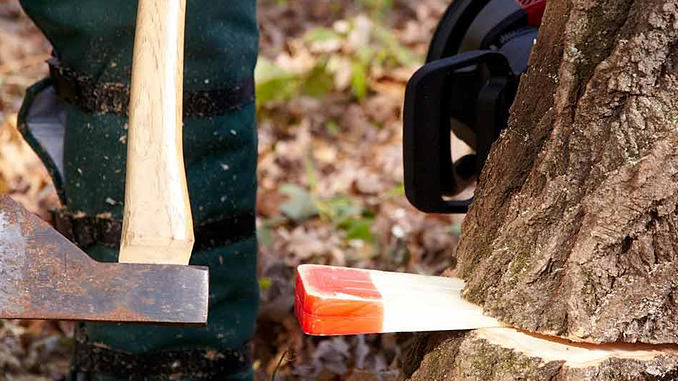
“K” means “curvilinear motion” as expressed in the form of water ( ka ) and light ( ka ) the creative energies of the universe. “K” becomes “kr” meaning that which “carries out ( r ) a movement in space ( k )” defined in the Sanskrit dictionary as “to do” “to act” “to create” this then becomes “krt” meaning “to act ( kr ) between two points ( t )” and defined as “to cut” “to divide” “to tear asunder”.
“Krt” becomes “krta” a “cut in the mountain” “abyss” “hide” “skin” it becomes “kartana” meaning “cutting off” it becomes “kartari” meaning “knife” “scissors” it becomes “carman” meaning “skin” “pelt” “hide” “bark” and it becomes “carmakara” meaning “cobbler” “shoemaker” “worker in leather”.
“Carman” meaning “hide” “skin” “pelt” “bark” becomes the Latin “carnivorous” as in those who “eat flesh” and “carnage” as in “to slaughter” “to murder”. Its also the source of the Latin “corium” meaning “skin” “hide” “leather” and this produces the word “cortex” which is the wrinkled outer layer or “skin” of the brain. In Latin they have the word “coriacea vestis” meaning “garment of leather” the “vestis” is from the Sanskrit “vest” meaning “dress” “covering” “wrap around” and “coriacea” meaning “leather” is from this Sanskrit “carman” meaning “leather”.
In ancient times animal skin was used to insulate the boats, one such boat was a “coracle” a small roundish boat to be found upon the waterways of Britain. Its name reflects its structure which is made from the “skin” the “hides” of animals and the source of this name is the Sanskrit “carman” meaning “skin” “pelt” “hide”. A similar boat is the Celtic “currach” also made from animal “skins” and also related to this Sanskrit “carman” meaning “skin”.
“Carman” also gives us “scrotum” which comes from “scortum” meaning “skin” “hide”. “Quarry” as in that which is being hunted also stems from “carman” as does the word “cork” which is the “bark” or “skin” of a tree.
The root of “carman” the Sanskrit “krt” meaning “to cut” gives us the Greek “keiro” meaning “to cut” and this gives us the Greek “kleros”. “Kleros” refers to branches of a tree which would be “cut” and used as part of a priestly divination where lots would be drawn deciding the fate of goods and land. From “kleros” comes the Latin “clericus” meaning the “heir” the “inheritor” of a religious tradition and this then becomes the word “clergy” reflecting how the priests from the Old Testament had no “inheritance” except the lord.
From this appears the word “cleromancy” which is the casting of lots or the rolling of dice to determine an outcome which was then seen as an act of God or some supernatural force. The “mancy” means “divination” from the Latin “mantia” meaning “oracle” “divination” from the Greek “mantis” meaning “seer” “prophet” “soothsayer” from the Latin “mania” meaning “madness” from the Indo/european “men” meaning “to think” and all of this stems from the Sanskrit “man” “mana” and “manas” meaning “thought” “mind” “imagination”. The “clero” we have already explained as it travels from the Sanskrit “krt” to the Greek “kiero” to the Greek “kleros” to this Latin “clero”.
“To divination and casting of lots, they pay attention beyond any other people. Their method of casting lots is a simple one: they cut a branch from a fruit-bearing tree and divide it into small pieces which they mark with certain distinctive signs and scatter at random onto a white cloth. Then, the priest of the community if the lots are consulted publicly, or the father of the family if it is done privately, after invoking the gods and with eyes raised to heaven, picks up three pieces, one at a time, and interprets them according to the signs previously marked upon them.” – Tacitus – Germania.
